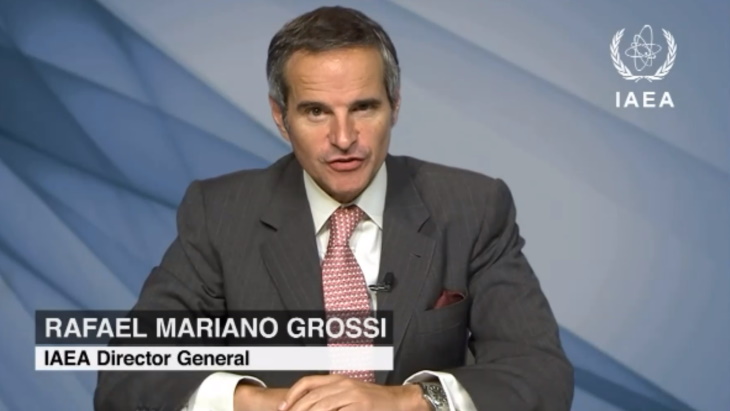Introducing the webinar - titled Appointing a National Focal Point on Denials of Shipment of Radioactive Material - Serge Gorlin, head of industry cooperation at World Nuclear Association, noted a steering committee on the denial of shipments was established under the IAEA in 2006. One of its main objectives was to encourage Member States to appoint a NFP. At its height, there were 88 Member States with appointed NFPs. However, since the steering committee reached the end of its term in 2013 the NFP network has declined. Transport routes for Class 7 (radioactive) materials are now "fragile" and such materials are often shipped via indirect and more complex routes. The IAEA's 2020 Resolution for nuclear and radiation safety calls upon Member States "to identify ... a national focal point on denials of shipment of radioactive materials to achieve a satisfactory and timely resolution of this issue".
"The IAEA has recognised again the need to take more concerted action and is setting up a working group on denial of shipment," Gorlin said. "A technical meeting will meet next month to discuss the terms of reference for this group."
In an address to the webinar - which was held both on 22 and 23 July - Grossi noted that more than 20 million shipments of radioactive materials take place annually by land, sea and air. The IAEA, he said, establishes regulations and standards for the transport of radioactive materials and provides training on how these should be applied.
"The good news is there have been no reported transport accidents with serious radiological consequences, despite the growth in volume," Grossi said. "This excellent 60-year safety record is a credit to national authorities' diligent review of transport safety requirements and of the safety-first culture adopted by those involved in operations.
"However, it is very important that deliveries are not delayed or blocked along the way. This is of particular significance when it comes to medical isotopes, whose delay can cause much concern among patients and their doctors. Last year the pandemic added a new challenge. Some Member States suffered several months of disruption to supplies of imported radioisotopes."
Grossi noted there will always be occurrences of denials of shipment, but the IAEA has had success working with Member States to reduce their number.
Establishing national focal points
"National focal points serve a critical role," he said. "They are the interface with their governments. They identify and validate reported instances of denial and delays. They coordinate and communicate at the national level with all stakeholders in finding solutions. And they share knowledge by updating and disseminating information at a national level and beyond."
Noting that still too few NFPs are being appointed, Grossi said: "I appreciate this is not an easy area. Many maritime carriers choose not to carry radioactive materials and there is an overall lack of data and awareness surrounding the issue. This is precisely why NFPs are so important. The more Member States appoint them, the more data can be collected and shared, and the smoother the transport of this important material will become."
Gorlin added, "There are no easy solutions to the question of facilitating the transport of radioactive materials and NFPs is certainly not a silver bullet. But it does provide part of an answer to the issue."
Participants in the webinar heard from Bernard Monot of Navy Blue Consulting and Natanael Bruno of the Brazilian Nuclear Energy Commission, both of whom have acted as NFPs on denials of shipment of radioactive materials. They said denials of shipment can be due to limited routes and carriers or because of the refusal of authorities to allow such shipments. Decisions by carriers not to accept Class 7 materials can be due to a lack of economic incentive, such as the small volumes involved together with the additional requirements for transporting it. There is also the perception of the risks associated with radioactive materials. In addition, regulations for transporting Class 7 materials can be more complex than for those of other hazardous goods.
Denial of shipments can lead to longer and more complicated transport routes and a lack of flexibility in route selection. These can result in increased costs and possible misdeclaration to enable shipment. There are also indications that longer and more complicated routes may result in compromises to safety and security.
Concluding the webinar, Gorlin said a team effort is required in order to reduce denials of shipment. "There is an industry out there that is competent in applying the regulations and experienced in shipping radioactive materials. But they will not alone in some instances be able to ship material in a time-efficient and direct manner."
A video of the webinar can be viewed here.






_13505.jpg)
_87975.jpg)
_67826.jpg)






